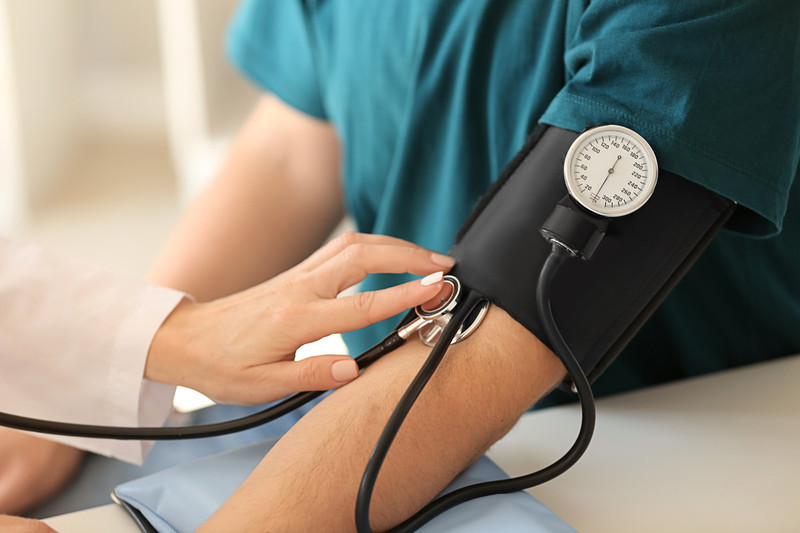It is common to hear of, or be concerned over, a diagnosis of high blood pressure. Considering the American cultural phenomena of fast food, sedentary lifestyles, and high caloric consumption, it makes sense that high blood pressure is a common occurrence and concern. However,
low blood pressure (hypotension, or low BP), is also worth considering because of the health detriments surrounding it.
Symptoms and Causes of High Blood Pressure
Many factors can lead to a lower-than-normal blood pressure reading. Per
mayoclinic.org, a reading of less than 90 milligrams of mercury for systolic blood pressure, and/or less than 60 mg for diastolic blood pressure, is generally considered low blood pressure.
However, it is difficult to label a low reading as �low blood pressure� on any given day if none of the corresponding symptoms of trouble are present: dizziness, dehydration, fatigue, and cold & clammy skin, among others, per
heart.org. If just one of these symptoms occurs, it could be caused by something other than low BP. But if you are experiencing multiple qualifying symptoms, then you should visit your doctor to see if low BP is the source of your symptoms. Also, it is very important that you discuss with your doctor the approaches to treating hypotension if it is indeed the problem.
Per
mayoclinic.com, low blood pressure often occurs because of these conditions: pregnancy, dehydration (can be both a cause and a symptom), certain heart conditions such as low heart rate, and a lack of certain nutrients in one's diet. Another important consideration is the fact that one's blood pressure can change from one hour or day to the next, depending on stress level, medications, and if one is sitting or standing.
Five Supplements and Lifestyle Habits to Remedy Low Blood Pressure
Calcium is a critical nutrient with many important roles in the body, including in the bones, blood vessels, and elsewhere. This nutrient is thought to help with overall regulation of blood pressure. Per
harvard.health.edu, �Calcium is important for healthy blood pressure because it helps blood vessels tighten and relax when they need to.� If you have low BP, and think your diet may be lacking in calcium, then a calcium supplement may come in handy.
Caffeine. This one might be unexpected, but it's true. Caffeine can have a positive effect on raising low blood pressure, per
food.ndtv.com. However, the effects are short term, and it is not recommended to drink caffeine regularly for the purpose of raising blood pressure. Caffeine might be particularly helpful if you are experiencing fatigue as a result of low BP. A healthy serving of caffeine can be consumed in a cup of coffee, or in smaller amounts in a cup of certain types of green or black tea.
Rosemary is an herb that is commonly available as a supplement, and as an oil. Per
emedihealth.com, consuming rosemary three times a day may help combat low blood pressure. They refer to a 2015 study in which it was shown to have an anti-hypotensive effect.
Getting enough salt in your diet may help ensure that your blood pressure does not go too low, per
food.ndtv.com. This one is important. Salt is essential for certain bodily functions, and maintaining adequate blood pressure is one of them. You may have heard that too
much salt can raise your blood pressure too high, so keeping your salt intake in a healthy range is important.
Eating smaller portions at mealtime can help keep your blood pressure from sinking intermittently, per
emedihealth.com. This is because digestion can cause blood pressure to go down. Instead, it is recommended that you eat smaller portions, but eat more often throughout the day. This will help ensure that your blood pressure over the course of a day remains at a healthy balanced level.

